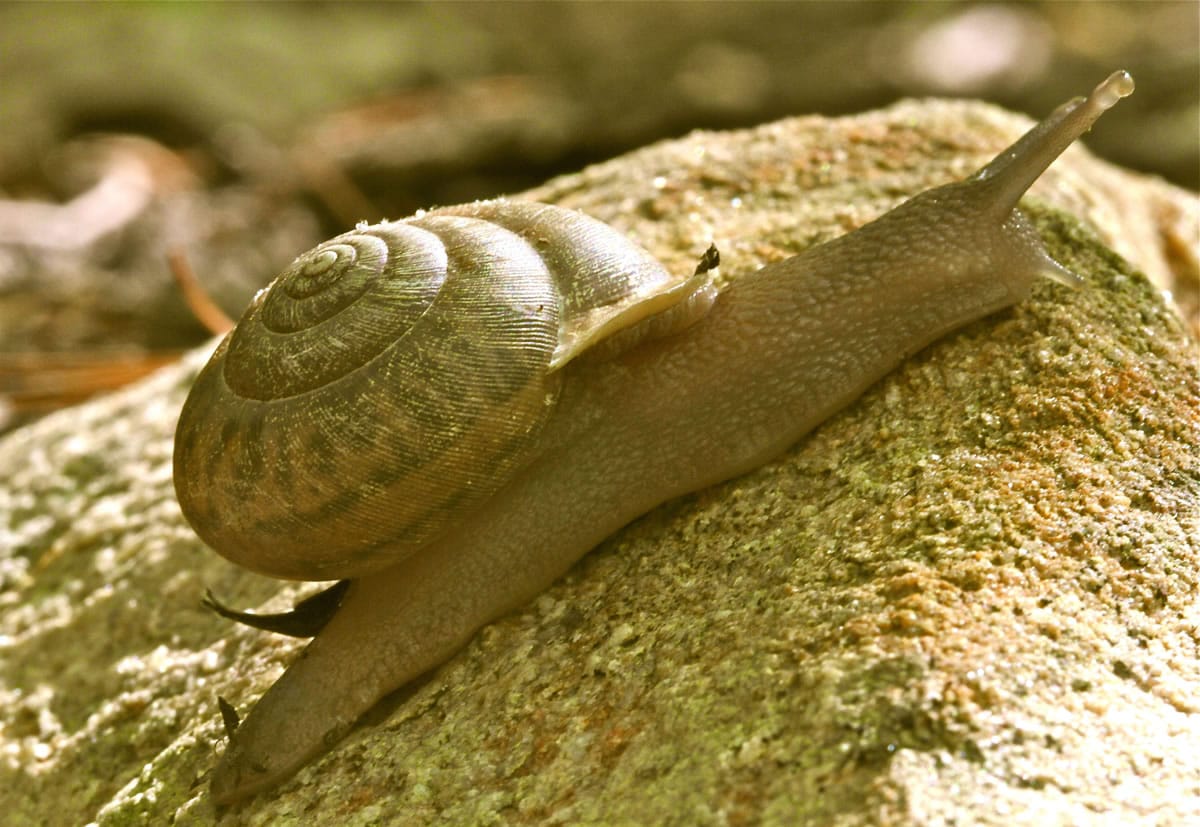Slugs and snails are ravenous plant eaters that leave behind slimy trails of destruction as they glide through nurseries and lawns, farm fields and gardens. Remedies abound, but prevention is an effective way to start.
“Remove any debris from the garden,” said James Dill, a pest management specialist with University of Maine Extension. “Straw, boards, leaves and stuff like that. They provide the perfect hiding places for slugs in the daytime. Then they come out at night and do their damaging thing.”
For more about controlling snails or slugs, check out this Oregon State University website.
Slugs are essentially snails without shells, Dill said. “Sizes and colors are all over the map but both can be very destructive.”
Slugs and snails prefer feeding on soft-leaved plants, although they will eat whatever is available.
“Three or four years ago I would have said strawberries, hostas and leaves,” Dill said. “But when you see the damage (done) to potatoes or tubers, you realize they can rasp on anything.”
Maine had a wet summer last year and slugs hit the state’s potato crop hard. “Commercial growers reported 6 to 7 percent of their crop was damaged,” Dill said.
Slugs prefer cool, rainy climates where they won’t dry out. Snails, which can find relief from the heat by withdrawing into their shells, are more adapted to dry climates.
Effective snail and slug management calls for a combination of garden upkeep and trapping. As for the most commonly used homemade baits, however, put away the saltshakers and leave the beer in a cooler, said Robin Rosetta, an entomologist with the Oregon State University Extension Service.
“Table salt can dry up the mollusks but it also can build in the soil over time, damaging plants,” she said. “Fermented sugar water and yeast is cheaper than beer-baited traps and just as functional for drowning slugs.”
Commercial baits are toxic to snails and slugs, but some varieties — especially those containing metaldehyde — can be harmful to children and pets.
“The iron phosphate products work really well, are generally less toxic than other chemical controls, and several are organic,” Rosetta said.
Making your yard less hospitable to slugs and snails is generally more effective than using chemicals, she said. Consider:
• Watering plants in the morning when snails and slugs are less active. Using drip irrigation rather than sprinklers also makes their habitat less appealing.
• Distancing plants that need more water from those that are drought-tolerant.
• Weeding to eliminate moist places where slugs find cover.
• Handpicking slugs about two hours after sunset.
• Using barriers to separate slugs and snails from planting beds. Slugs and snails are effective climbers so raised bed gardens and containers aren’t good deterrents. “Placing copper strips around those systems, though, works as a repellent, and is toxic to slugs and snails,” Rosetta said.



